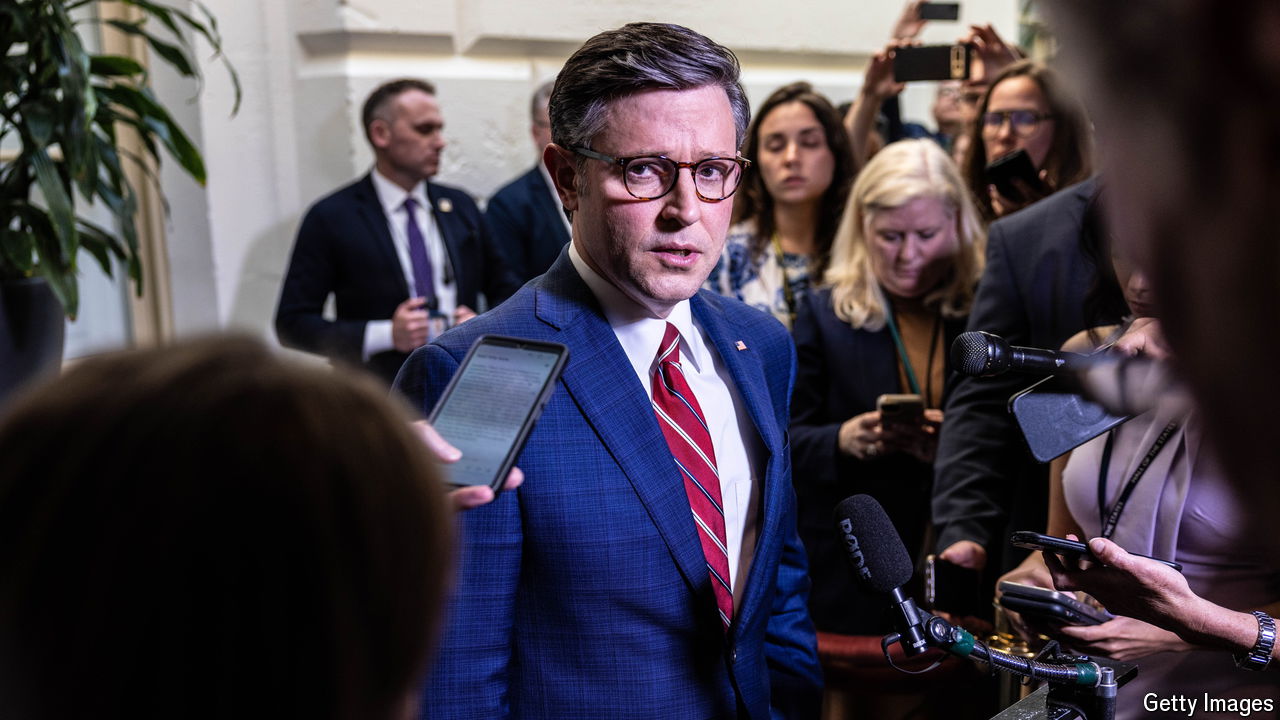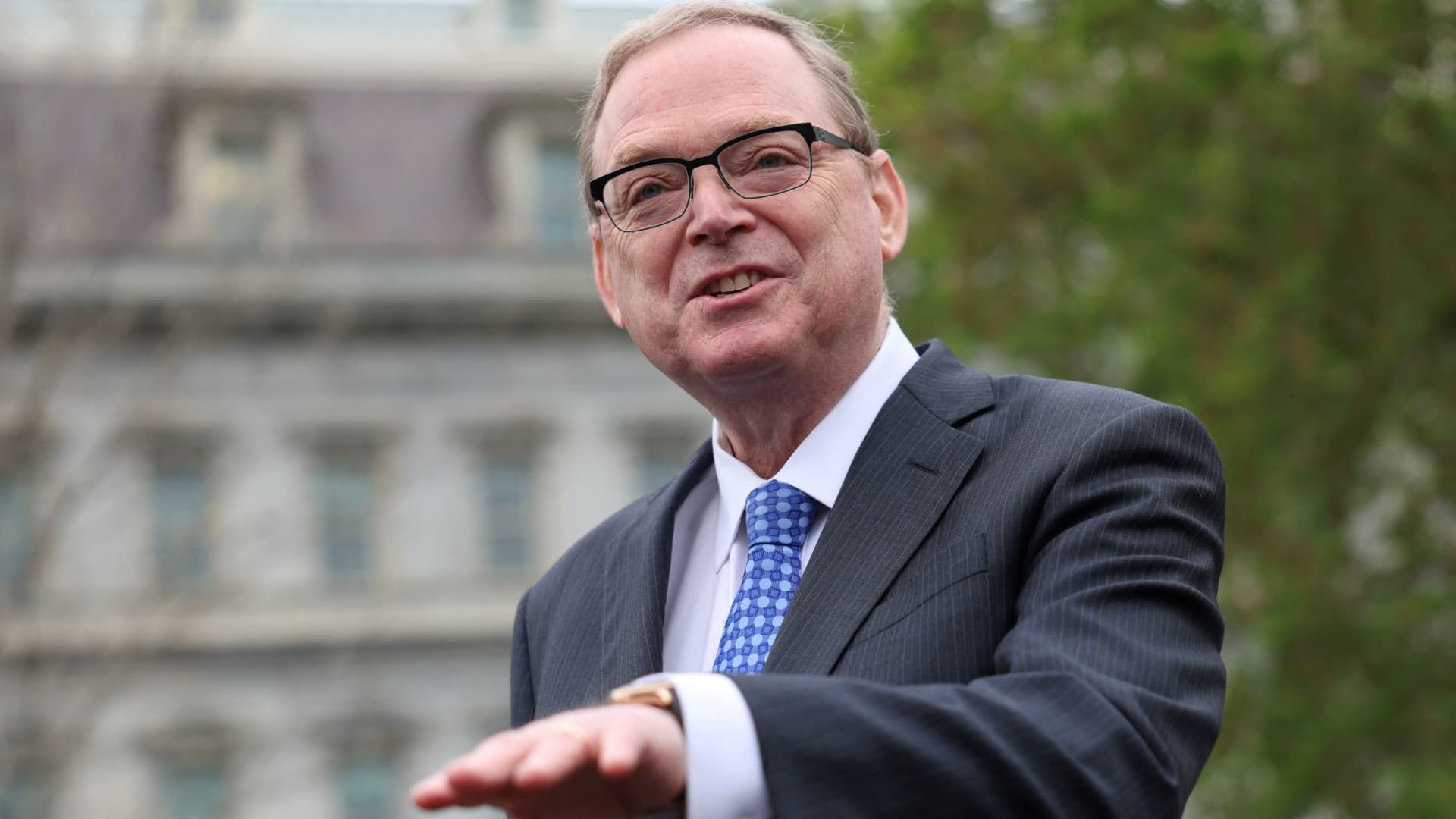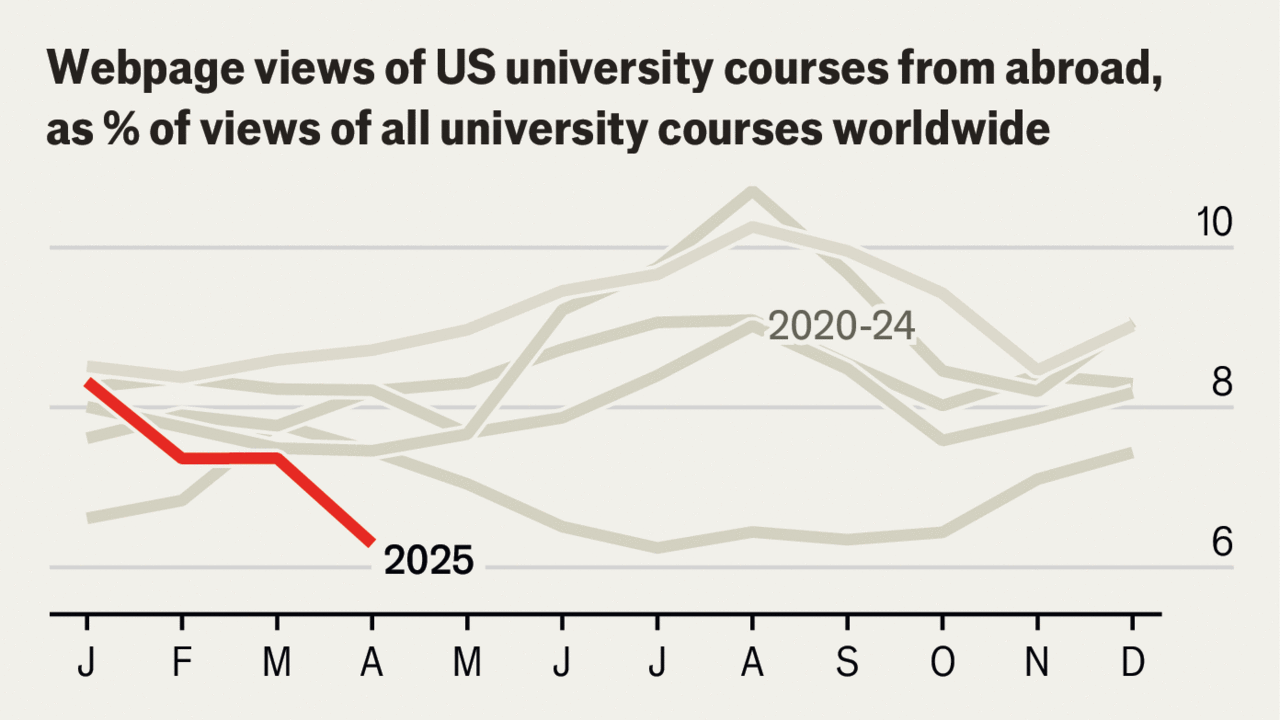JUST ONE WEEK ago, hope looked fanciful. President Joe Biden’s pitch to spend $100bn on aid for America’s allies under threat—Israel, Taiwan and especially Ukraine—had languished in Congress for six months since it was proposed in October 2023. The dithering had consequences. Ukrainian soldiers, forced to ration ammunition, are being pummelled by Russians with an artillery advantage of five to one. America’s senior general in Europe warned that they would soon be outgunned by a margin of ten to one. Bill Burns, the CIA director, warned on April 18th that, without any more aid, “there is a very real risk that the Ukrainians could lose on the battlefield by the end of 2024.”
The man needed to see the necessary national-security budget bill through, Mike Johnson, the Republican speaker of the House, seemed unfit for the task. Thrust into the role from relative obscurity six months ago after his loud, isolationist colleagues defenestrated their previous leader, Kevin McCarthy, Mr Johnson lacked leadership experience. He had only a razor-thin parliamentary majority, had voted repeatedly against Ukraine funding himself and faced the threat of regicide from his own side if he changed his mind. For months he seemed paralysed and indecisive. And yet on April 20th, under Mr Johnson’s leadership, the House of Representatives met the moment, passing the budget bill through extraordinary parliamentary manoeuvring with large, bipartisan majorities in defiance of the isolationist faction of the Republican Party. Even though a majority of his own party voted against additional aid for Ukraine, Mr Johnson secured its passage with unanimous Democratic support. The isolationists managed to delay America’s support for its allies for six months, but ultimately could not defeat it.
Mr Johnson’s courage— what even his Democratic opponents have described as his Churchillian moment, may have come about for three reasons. First, Mr Johnson became haunted by the briefings he received as one of the congressional leaders in the Gang of Eight, who can receive highly classified intelligence. “I really do believe the intel and the briefings that we’ve gotten,” he said in recent remarks to the press. “I believe that Xi [Jinping] and Vladimir Putin and Iran really are an axis of evil.”
Second, Mr Johnson seemed to realise that his turn in power was destined to be brief, regardless of his actions. Marjorie Taylor Greene, an irrepressibly isolationist Republican congresswoman who seems to believe that Mr Putin is fighting on the side of Christianity against Ukraine, filed a “motion to vacate” (or sack) Mr Johnson after he passed a bill to keep the federal government open with Democratic votes. The speaker could have laboured in fear of such a threat or, as he daringly did, strike a bargain with Democrats to support him in exchange for bringing up the foreign-aid bill.
Third, Mr Johnson may have cleverly secured the tacit blessing of Donald Trump by paying a flattering visit to Mar-a-Lago last weekend. It did not hurt that one of Mr Trump’s ideas, of labelling economic aid to Ukraine’s government as a loan instead of a grant, was incorporated. Rather than urge his fellow Republicans to vote against the bill, Mr Trump only griped that Ukraine’s survival “should be much more important to Europe than to us but it is also important to us!”
The House was the last significant hurdle. Chuck Schumer, the Democratic Senate majority leader, expects to hold a vote on the combined package on Tuesday. Because the Senate overwhelmingly passed a very similar aid package in late February, it should do so again. Mr Biden is certain to sign it into law.
The consequences for Ukraine will be nearly immediate, preventing serious setbacks on the battlefield in the near term and undercutting Russia’s long-term belief that its war economy—it is devoting at least 6% of GDP to defence—is an unstoppable juggernaut. America is planning to send $61bn to Ukraine in total. The vast majority of that will be spent on lethal aid by replenishing American military stockpiles, allowing more to be given away, and procuring new weapons and ammunition from American arms firms. The first priority is desperately needed shells. An American three-star general has already been assigned the job of organising arms deliveries, subject to the vote. The Pentagon should be able to start getting shells to Ukraine within two weeks, reckons Michael Kofman of the Carnegie Endowment, a think-tank, and can supply enough to last for a year or so. Larger weapons systems will take much longer to ship; some still need to be ordered, let alone manufactured. The hope is that it will be enough to fend off a larger-scale Russian offensive that Kyrylo Budanov, the head of Ukraine’s military-intelligence service, has said he expects in June.
Ukraine has other looming problems, though. Its stock of air-defence interceptor missiles, fired from a mix of American, European and Soviet-era launchers, has dwindled. Russian attack jets have recently been providing close air support to troops with seemingly little risk of being shot down. America’s Patriot missile-defence systems are in high demand elsewhere, including Israel, and production is low. At the same time, Russia is deploying effective new weapons. On April 11th it successfully launched an attack on a thermal power station in Kyiv using a Kh-69 stealth cruise missile that eluded a Patriot interceptor. Even with enough kit, Ukraine confronts a serious manpower disadvantage compared with Russia. This month Volodymyr Zelensky, Ukraine’s president, reduced the age for conscription to the armed forces to 25 despite the considerable unpopularity of that measure.
Although the provisions for Ukraine are the most important, the other bits passed by the House are consequential, too. Progressive Democrats strenuously objected to the $16bn in military aid for Israel, because of the dire humanitarian conditions in Gaza. Much of this spending would replenish defensive weapons like those used by Israel’s Iron Dome, but it also provides billions for new offensive weapons. American authorities would be given the ability to seize $5bn in Russian sovereign assets that have been frozen since the start of the war and transfer them to Ukraine to help defray the cost of defending itself. Riding along with the bill is a hotly debated law that would force the sale of TikTok, a time-sucking app, to a non-Chinese owner within the next year.
Seeing all of this through will be the legacy-defining achievement of Mr Johnson. Ukraine will get the ammunition and weapons systems (including, perhaps, more long-range ATACMS) that it needs to weather a Russian offensive—at least until the next president is sworn in next year. Many feared that a Trump victory would force Ukraine to accept either defeat or a huge territorial loss in 2025. Without congressional action, though, that might have happened even while Mr Biden remained president. Mr Johnson’s reward for defying members of his own party is unlikely to be more power—some are already speculating that his speakership might be over within a matter of weeks. “I could make a selfish decision and do something that’s different but I’m doing here what I believe to be the right thing,” he said this week. “History judges us for what we do.” ■

 Accounting1 week ago
Accounting1 week ago
 Economics1 week ago
Economics1 week ago
 Personal Finance1 week ago
Personal Finance1 week ago
 Accounting1 week ago
Accounting1 week ago
 Finance7 days ago
Finance7 days ago
 Economics1 week ago
Economics1 week ago
 Economics1 week ago
Economics1 week ago
 Economics1 week ago
Economics1 week ago









